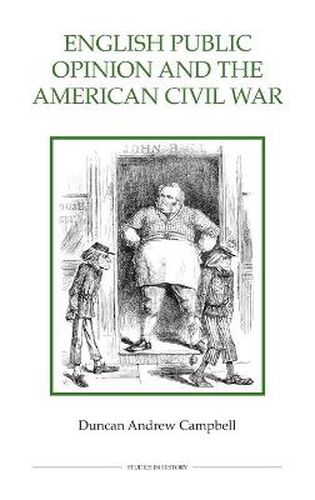Readings Newsletter
Become a Readings Member to make your shopping experience even easier.
Sign in or sign up for free!
You’re not far away from qualifying for FREE standard shipping within Australia
You’ve qualified for FREE standard shipping within Australia
The cart is loading…






At the end of the American Civil War, both North and South condemned Britain for allegedly sympathising with the other side. Yet after the conflict, a traditional interpretation of the subject arose which divided English sentiment between progressivism siding with the Union and conservatism supporting the Confederacy. Despite historians subsequently questioning whether English opinion can be so easily divided, challenging certain aspects and arguments of this version of events, the traditional interpretation has persevered and remains the dominant view of the subject. This work posits that English public and political opinion was not, in fact, split between two such opposing camps - rather, that most in England were suspicious of both sides in the conflict, and even those who did take sides did not consist largely of any one particular social or political group. Covering the period from 1861 to 1865, Campbell traces the development of English opinion on the American Civil War, looking particularly at reaction to issues of slavery, neutral rights, democracy, republicanism, American expansionism,trade and propaganda. In so doing he offers a new interpretation of English attitudes towards the American Civil War. DUNCAN ANDREW CAMPBELL lectures in the Department of American Studies, University of Wales Swansea.
$9.00 standard shipping within Australia
FREE standard shipping within Australia for orders over $100.00
Express & International shipping calculated at checkout
At the end of the American Civil War, both North and South condemned Britain for allegedly sympathising with the other side. Yet after the conflict, a traditional interpretation of the subject arose which divided English sentiment between progressivism siding with the Union and conservatism supporting the Confederacy. Despite historians subsequently questioning whether English opinion can be so easily divided, challenging certain aspects and arguments of this version of events, the traditional interpretation has persevered and remains the dominant view of the subject. This work posits that English public and political opinion was not, in fact, split between two such opposing camps - rather, that most in England were suspicious of both sides in the conflict, and even those who did take sides did not consist largely of any one particular social or political group. Covering the period from 1861 to 1865, Campbell traces the development of English opinion on the American Civil War, looking particularly at reaction to issues of slavery, neutral rights, democracy, republicanism, American expansionism,trade and propaganda. In so doing he offers a new interpretation of English attitudes towards the American Civil War. DUNCAN ANDREW CAMPBELL lectures in the Department of American Studies, University of Wales Swansea.